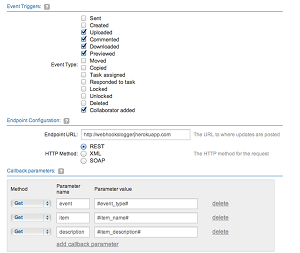News
Box Courts Citizen Developers
- By David Ramel
- August 18, 2016
Box is making more moves to entice "citizen developers" to use its content platform for creating Box-based apps or integrations.
Box specializes in cloud storage, similar to other offerings such as Dropbox, OneDrive, Google Drive and so on. It facilitates file sharing, collaboration and enterprise content management.
Along with those functionalities, Box provides some app development services -- offering UI components, SDKs and the like -- with the Box Platform and the company has a history of working with others to ease app creation for non-developers in companies using its technology.
"With the rise of citizen development, more and more teams are empowered to create applications that digitize some part of their day-to-day activities," the company said in a blog post yesterday titled Paving the Way for Citizen Development with New Webhooks. "Citizen development is a huge focus for the Box Platform team," the company said.
That focus is sharpened with the introduction of new webhooks, first introduced in 2012. Box just introduced webhooks V2 in a public beta program. The Box Web site provides a definition of these webhooks:
Webhooks are triggers that you can attach to Box files and folders to notify you when those objects are accessed. You define the webhooks that you want to attach to a file or a folder and the URL that you want to notify. When events identified by the webhook occur Box responds by sending HTTP requests to the defined URL.
Box determined that it could improve the webhooks to provide more functionality for companies that work with Box technology, such as ManyWho, Nokavision (which built a Mendix module for the Box Platform), Built.io and others.
 [Click on image for larger view.]
Box Webhooks in Action (circa 2012) (source: Box)
[Click on image for larger view.]
Box Webhooks in Action (circa 2012) (source: Box)
"Built on Box's UI components and SDKs, these citizen development platforms enable easy creation of high-impact custom apps," the company said. "But when we looked at the kinds of applications our customers were building, we realized that we could open up significant new integration opportunities and make development easier and more efficient by revamping our webhooks."
Box developer documentation provides more details of the revamped webhooks V2 API.
"The Webhooks v2 API defines GET, POST, PUT, and DELETE methods you can use to create webhooks, define the events that trigger notifications, set the URLs they communicate with, and remove them when they are no longer needed," the documentation states. "Because every aspect of webhooks can be controlled through the API your application can create webhooks on files and folders as they're needed and remove them when they aren't."
Benefits of the upgraded webhooks as listed by the company include:
-
More Granular: Webhooks can be set on specific file and folder activity.
- API-managed: Developers can set webhooks on the fly via the API; enables granularity of the callback URLs.
- More secure: Adding hashed signature to notifications so apps can verify the notifications are the ones they created within Box.
- More reliable: Infrastructure investments mean higher success in sending notification and we have added retries to improve delivery rate.
- More detailed: Payload now includes actor, trigger and the full V2 resource description.
For more information, interested developers -- citizen or otherwise -- can check out Getting Started with Webhooks V2 and the webhooks V2 API reference.
About the Author
David Ramel is an editor and writer at Converge 360.